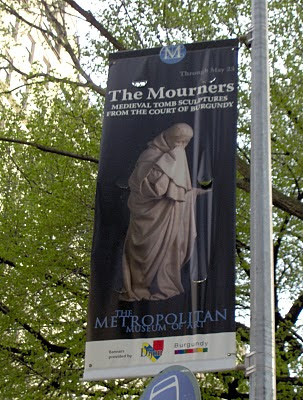Last month, a student from Columbia High School contacted me, asking for piano lessons. He was preparing for a special project: If he managed to learn the first movement of Mozart's Piano Concerto No 17 in B-flat major, he would get the chance to play it with the Youth Orchestra - provided he could play it well enough.
Miles has been playing the piano for about 2 years, and he’s basically self-taught. For some time, the choir director at school had worked with him, but he had gone on leave, and now Miles was left without a teacher. He didn’t have a good piano at home and always practiced at school. We met to see if we could work together, and I was impressed.
Then, Miles told me the date of the concert: May 1st, 2010 - just 6 weeks away. “I could never do that,” I thought. I’m a slow learner, and if I don’t have my program down, memorized and ready to roll a month before the performance, my brain freezes in panic, preventing me from taking in any information at all.
“I could never do that...” that’s what a writing teacher once told me when I explained that I don’t always write in chronological order, but sometimes picture different scenes at different points of the story and work on them individually. As a novice writer, I found the reaction very discouraging, possibly suggesting that I was doing something wrong or at least unprofessional.
“I could never do that,” said an expert on memorization, when I explained that I practice “starting points” in random order and advise my students to do the same. I started to question my own experience and wonder whether I was imposing trauma on my students.
When I accompanied students at competitions, I’ve occasionally seen well-meaning parents sabotage their children, saying “I could never do that” minutes before the performance.
All of that in mind, I swallowed the remark, and decided to see what would happen. Miles threw himself into the project with great enthusiasm. Yet, progress was slow at first - 2 pages a week, maybe 3. “And then you have to develop the stamina to pull it all together and hold up against the orchestra,” I thought. Spring vacation came along, 3 weeks to go. I suggested to modify the goal. Bring the piece far enough to play a rehearsal, and making the final decision would not be his responsibility anyway.
After vacation, Miles played the entire piece. We worked on the cadenza. When he came this week, he had already played with the orchestra, and the director had decided that he will be playing in the performance.
“I could never do that.” I don’t think I could, but to tell the truth, I’ve never tried. I just have many years of experience, performing myself and watching others perform. When I was Miles‘ age, I didn’t try to learn a movement of a Mozart Concerto in 6 weeks and perform it, but I did a couple of other things that the adults in my life thought rather daring, if not to say impossible. It’s still great to see determination, focus, hard work and youthful enthusiasm win over doubts based on experience. Congratulations, Miles, and good luck for the concert.
The concert with the Northern New Jersey Youth Orchestra will take place next Saturday, May 1st at 2pm at the Notre Dame Church in North Caldwell NJ 359 Central Avenue, North Caldwell NJ 07006.




















